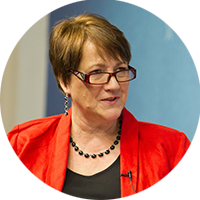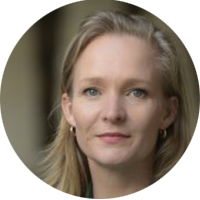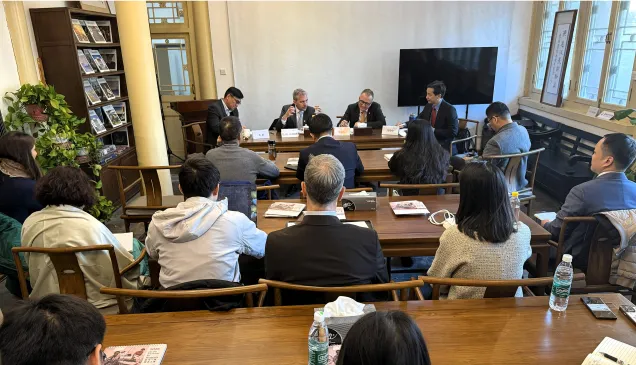有关冲突期间数字威胁的全球顾问委员会

2021年至2023年间,红十字国际委员会组建了一个高级别顾问委员会,就武装冲突期间保护平民免受网络威胁和其他数字风险的法律和政策挑战向该组织提供意见并制定具体建议。
保护民用基础设施免受武装冲突期间敌对网络行动的影响
随着当今社会数字化程度日益深化,且日益互联互通,网络行动对人类造成伤害的风险正在增加。
过去十年间的网络行动,无论发生在武装冲突期间还是之外,对向平民居民提供基本服务(包括医疗、电力、供水和卫生服务)或核设施构成了真正的威胁,人类也真切地面临受到伤害的风险。
保护平民免受武装冲突期间信息行动的有害影响
数字信息技术快速演变,并日益得到使用,正在将错误信息、虚假信息和仇恨言论转变为驱动因素,导致冲突动态、暴力局势和平民伤害不断恶化和加剧。
错误信息、虚假信息和仇恨言论可以通过煽动人身暴力(如针对少数群体发表仇恨言论)等方式,直接或间接造成不利的人道后果。
平民被卷入数字化军事行动的风险
社会的数字化导致参与武装冲突相关数字化行动的平民(个人、团体、公司)急剧增加,民用数字基础设施也越来越多地被用于军事目的。
这一趋势导致了民事与军事之间的根本区别可能日渐模糊的现实,致使平民和民用基础设施受到伤害的风险增加。
保护人道组织提供挽救生命服务的能力
针对人道组织的网络行动和虚假信息宣传会在全球人道需求巨大、人道响应能力不足的背景下削弱这些组织的行动和架构。
这种威胁会加剧受冲突影响民众的需求,并对平民造成重大伤害,包括通过未经授权获取人道数据的手段。
红十字国际委员会还就其他新兴网络威胁和数字风险寻求专家的意见:包括自动化和人工智能在网络和信息行动中日益频繁的使用、与"物联网"指数级增长相关的新型人道风险,以及数字空间中构成威胁的参与方数量不断增加。
红十字国际委员会全球顾问委员会通过了一份联合报告,向交战方、各国、科技公司和人道组织提出了四项指导原则和一系列具体建议,以防止或减轻平民居民所面临的数字威胁。
红十字国际委员会还将就其他新兴网络威胁和数字风险寻求专家的意见:包括自动化和人工智能在网络和信息行动中日益频繁的使用、与"物联网"指数级增长相关的新型人道风险,以及数字空间中构成威胁的参与方数量不断增加。
红十字国际委员会数字威胁全球顾问委员会委员包括:
牛津大学布拉瓦尼克政府学院伦理、法律和武装冲突研究所联合所长兼国际公法教授达波·阿坎德(Dapo Akande)
 Dapo Akande is Professor of Public International Law at the Blavatnik School of Government, University of Oxford, where he is also Director of the Oxford Institute for Ethics, Law and Armed Conflict. He has held visiting professorships in the US and Europe, including at Yale Law School. He was on the International Group of Experts for the Tallinn Manual 2.0 on International Law Applicable to Cyber Operations and is a leader of the Oxford Process on International Law and Cyber Operations.
Dapo Akande is Professor of Public International Law at the Blavatnik School of Government, University of Oxford, where he is also Director of the Oxford Institute for Ethics, Law and Armed Conflict. He has held visiting professorships in the US and Europe, including at Yale Law School. He was on the International Group of Experts for the Tallinn Manual 2.0 on International Law Applicable to Cyber Operations and is a leader of the Oxford Process on International Law and Cyber Operations.
He is one of the authors of the Oppenheim's International Law: The United Nations (2017, OUP) which was awarded the Certificate of Merit by the American Society of International Law, and an editor of the Oxford Guide to International Humanitarian Law (2020). He has been a member of the Editorial or Advisory Boards of several journals including the American Journal of International Law, the European Journal of International Law, and the African Journal of International and Comparative Law.
He is the founding editor of the scholarly blog: EJIL:Talk! the blog of the European Journal of International Law. He has acted as adviser on international law issues to United Nations bodies, the African Union Commission, the Commonwealth Secretariat, the Association of South-East Asian Nations, as well as to States and non-governmental organizations.
He has acted as advocate, counsel or adviser/expert in cases before international and national tribunals, including the International Court of Justice, the International Tribunal for the Law of the Sea, the European Court of Human Rights, international arbitral tribunals, World Trade Organization and North American Free Trade Area Dispute Settlement panels, and the UK Supreme Court. He served as legal adviser to the UK Parliament's All-Party Parliamentary Group on Drones.
美洲国家组织美洲司法委员会数据保护和适用于网络空间的国际法问题报告员玛丽安娜·萨拉萨尔·阿尔沃诺斯(Mariana Salazar Albornoz)
 Mariana Salazar Albornoz is a member of the Inter-American Juridical Committee of the OAS (2019-2022), where she is Rapporteur for Data Protection and for International Law Applicable to Cyberspace.
Mariana Salazar Albornoz is a member of the Inter-American Juridical Committee of the OAS (2019-2022), where she is Rapporteur for Data Protection and for International Law Applicable to Cyberspace.
She is a professor of International Humanitarian Law, International Criminal Law and Public International Law at Universidad Iberoamericana in Mexico City. She is also the Academic Programs Associate at the Auschwitz Institute for the Prevention of Genocide and Mass Atrocities (since 2019).
From 2005 to 2018 she worked at the Ministry of Foreign Affairs of Mexico, where she was Coordinator of Public International Law and, previously, Director of International Humanitarian and Criminal Law and of Economic, Social, and Cultural Rights.
She was the Technical Secretary of Mexico's Inter-Ministerial Committee on International Humanitarian Law (2010-2016) and Mexico's Focal Point to the Latin American Network on Genocide and Mass Atrocity Prevention (2012-2018) and to the Global Network for Responsibility to Protect (2018).
A former practitioner in law firms in Mexico City, Ms. Salazar holds a Law Degree from Universidad Iberoamericana (2001) and a Master's Degree in International Law from the Graduate Institute of International Studies in Geneva (2004). She writes on issues of international law, atrocity prevention, armed conflict and human rights and is a member of the International Law Association, of the Mexican Council on Foreign Relations, and of the Editorial Board for the International Review of the Red Cross.
南非国防部队A. J. 库切(A.J. Coetzee)准将(已退役)
 Brigadier General (Ret) A.J. Coetzee retired in 2019 after 40 years' service in the South African Defence Force and since 1994 the South African National Defence Force.
Brigadier General (Ret) A.J. Coetzee retired in 2019 after 40 years' service in the South African Defence Force and since 1994 the South African National Defence Force.
During his career he was deployed in various posts from formal training, operational- and staff posts.
Brig Gen (Ret) Coetzee was involved in Information Warfare from 1997 when he was appointed as the Second in Command of the SA Army Electronic Warfare Regiment, responsible for planning and coordinating Communication Intelligence Operations. He was later appointed as the Officer Commanding of the Electronic Warfare Regiment.
In January 2003 the then Colonel Coetzee was appointed in the post of Senior Staff Officer Information Warfare responsible for Information Warfare Governance which included the development of the Information Warfare Philosophy, Strategy, Policy and Master Plan. He was then also responsible for the Electronic Warfare (EW) and Philological Operations (PsyOps) Portfolio. His responsibility also included the coordination of the development of EW and PsyOps technology to be utilized in operations.
In 2009 he was appointed in the post of Director Information Warfare and promoted to the rank of Brigadier General. He was then responsible for Electronic Warfare and Philological Operations and an additional portfolio, Cyber which has become a very prominent focus in the development of the Information Warfare domain. Until retirement, he was responsible for providing Information Warfare governance to the SANDF and technology development for Electronic Warfare, Network Warfare (Cyber) and Psychological Operations in the SANDF.
Str@t-Algo网络与数字资深顾问阿诺·库斯蒂利耶尔(Arnaud Coustillière)中将(已退役)
 Vice-Admiral Arnaud Coustilliere left active service on 31 August 2020 after a long career devoted to maritime and digital operations.
Vice-Admiral Arnaud Coustilliere left active service on 31 August 2020 after a long career devoted to maritime and digital operations.
He left a strong imprint on the Ministry of the Armed Forces as first COMCYBER (2011/2017) and first Global Ministry Digital/CIO (2017/2020).
He is currently a Cyber & Digital Senior Advisor to various clusters, organizations and companies; he is particularly dedicated to the promotion of digital trust and the various aspects of cyber defence. In addition to an onboard maritime career marked by the command of several warships, he has devoted more than twenty years to modernizing the Ministry of the Armed Forces' cyber information and digital systems.
In particular, he was the Navy's CIO from 2006 to 2008, then in charge from 2009 to 2011 of the creation and ramp-up of the armies' Cyber Defence capabilities, then its first commander from 2011 to 2017 (COMCYBER). Finally, from 2017 to 2020 he created the DGNUM: a veritable "Group CIO" responsible for IT and project governance, ministerial administration of the Ministry's data, steering its digital security and orchestrating its digital transformation through several major reorganization's.
社交媒体研究公司Graphika首席创意官卡米耶·弗朗索瓦(Camille François)
 Camille François works on the impacts of technology on society, with an emphasis on cyber conflict and information operations. She currently serves as the Chief Innovation Officer at Graphika where she oversees its investigation, analyses and R&D teams and leads the company's work to detect and mitigate disinformation, media manipulation and harassment.
Camille François works on the impacts of technology on society, with an emphasis on cyber conflict and information operations. She currently serves as the Chief Innovation Officer at Graphika where she oversees its investigation, analyses and R&D teams and leads the company's work to detect and mitigate disinformation, media manipulation and harassment.
She was previously a Principal Researcher at Google, in the "Jigsaw" team, an innovation unit that builds technology to address global security challenges and protect vulnerable users. Camille has advised governments and parliamentary committees on both sides of the Atlantic, investigated Russian interference in the 2016 Presidential election on behalf of the US Senate Select Intelligence Committee, and served as a special advisor to the Chief Technology Officer of France.
She is an affiliate scholar of the Harvard Berkman-Klein Center for Internet and Society, a Fulbright scholar and a Mozilla Fellow. She holds a masters degree in human rights from the French Institute of Political Sciences (Sciences-Po) and a masters degree in international security from the School of International and Public Affairs (SIPA) at Columbia University.
Camille was distinguished by the MIT Tech Review in the prestigious "35 Innovators Under 35" annual award in the "Visionary" category for her work leveraging data science to detect and analyze deceptive campaigns at scale. She was also distinguished by TIME magazine as one of the 100 next most influential people in the world, for her work protecting open societies from the threat of disinformation.
微软公司客户安全与信任企业副总裁汤姆·伯特(Tom Burt)
 Tom leads a cross-disciplinary team that works to improve customer trust in the safety and security of the digital ecosystem by advocating for global cybersecurity policy, partnering with public agencies and private enterprises to disrupt nation-state cyberattacks and support deterrence efforts, and combatting cybercrime.
Tom leads a cross-disciplinary team that works to improve customer trust in the safety and security of the digital ecosystem by advocating for global cybersecurity policy, partnering with public agencies and private enterprises to disrupt nation-state cyberattacks and support deterrence efforts, and combatting cybercrime.
CST is also responsible for responding to law enforcement requests for access to data while protecting customer privacy, advocating for data access policy and managing Microsoft’s government clearance and national security compliance.
In addition to his work at Microsoft, Tom races sports cars and participates in musical theater.
欧盟议会爱沙尼亚议员,爱沙尼亚前外交部长玛丽娜·卡尔尤兰德(Marina Kaljurand)
 Kaljurand was elected to the European Parliament and started her duties as MEP on July 2nd, 2019 after resigning from the Estonian Parliament (Riigikogu). She is a member of the Estonian Social Democrats Party since June 2018. Kaljurand is the member of the UN Secretary General's Advisory Board on Disarmament Matters since 2020.
Kaljurand was elected to the European Parliament and started her duties as MEP on July 2nd, 2019 after resigning from the Estonian Parliament (Riigikogu). She is a member of the Estonian Social Democrats Party since June 2018. Kaljurand is the member of the UN Secretary General's Advisory Board on Disarmament Matters since 2020.
Kaljurand was a member of the UN Secretary General's High Level Panel on Digital Cooperation (2018-2019). She is the Commissioner of the Global Commission of the Stability of Cyberspace (GCSC) that she chaired (in 2017-2019) until she was elected to the Estonian Parliament. Kaljurand served as Estonian Foreign Minister in 2015-2016.
Kaljurand has served twice as the Estonian National Expert at the United Nations Group of Governmental Experts on Developments in the Field of Information and Telecommunications in the Context of International Security (GGE), in 2014-2015 and in 2016-2017. She began her career at the Ministry of Foreign Affairs in 1991 and held several leadership positions, including Undersecretary for Legal and Consular Affairs (Legal Adviser), Undersecretary for Trade and Development Cooperation, Undersecretary for Political Affairs.
She served as Ambassador of Estonia to the State of Israel, the Russian Federation, Kazakhstan, Mexico, Canada and the United States of America. Kaljurand headed the legal working group at the Estonian accession negotiations to the European Union and was the Chief Negotiator in Estonian accession negotiations to the OECD. Marina Kaljurand graduated cum laude from Tartu University (1986, LLM). She has a professional diploma from the Estonian School of Diplomacy (1992) and MA from the Fletcher School of Law and Diplomacy, Tufts University (F95).
促进和保护意见及言论自由权问题特别报告员艾琳·汗(Irene Khan)
 Irene Khan is the first woman to be appointed as UN Special Rapporteur for Freedom of Opinion and Expression. An internationally recognized advocate for human rights, gender equality and social justice, she teaches at the Graduate Institute of International and Development Studies in Geneva, and is co-author of The Unheard Truth: Poverty and Human Rights.
Irene Khan is the first woman to be appointed as UN Special Rapporteur for Freedom of Opinion and Expression. An internationally recognized advocate for human rights, gender equality and social justice, she teaches at the Graduate Institute of International and Development Studies in Geneva, and is co-author of The Unheard Truth: Poverty and Human Rights.
She was the Secretary-General of Amnesty International from 2001 to 2009 and Director-General of the International Development Law Organization (IDLO) from 2010 to 2019.
伏羲智库创始人和主任,中国互联网协会副理事长,中国科学院研究员,清华大学副教授李晓东
 Dr. Xiaodong Lee, Founder and CEO of Fuxi Institution, Vice Chairman of Internet Society of China, Former CEO of China Internet Network Information Center (CNNIC), former Vice President of Internet Corporation for Assigned Names and Numbers (ICANN).
Dr. Xiaodong Lee, Founder and CEO of Fuxi Institution, Vice Chairman of Internet Society of China, Former CEO of China Internet Network Information Center (CNNIC), former Vice President of Internet Corporation for Assigned Names and Numbers (ICANN).
YGL and Member of Global Future Council of World Economic Forum (WEF), Commissioner of the Global Commission on the Stability of Cyberspace (GCSC), Commissioner of Global Information Infrastructure Commission (GIIC), Research Professor and Director, ICT Laboratory for Internet Infrastructure, Chinese Academy of Sciences; Director of Center for Internet Governance and adjunct Professor of School of Public Policy and Management, Tsinghua University.
瑞士联邦前主席和联邦委员多丽丝·洛伊达尔德(Doris Leuthard)
 Doris Leuthard is currently working in the private sector as a member of the Boards of the Coop Group, Bell Food Group, Transgourmet International and Stadler Rail. In addition, she is President of the Ulrico Hoepli Foundation, Co-President of the Steering Committee of the Europa Forum Luzern, President of the Swiss Digital Initiative, Member of the ETH Foundation and Member of the Kofi Annan Foundation.
Doris Leuthard is currently working in the private sector as a member of the Boards of the Coop Group, Bell Food Group, Transgourmet International and Stadler Rail. In addition, she is President of the Ulrico Hoepli Foundation, Co-President of the Steering Committee of the Europa Forum Luzern, President of the Swiss Digital Initiative, Member of the ETH Foundation and Member of the Kofi Annan Foundation.
A Swiss national, Doris Leuthard studied law at the University of Zurich and is a qualified attorney at law. Following a career spanning several years in the private sector, she was elected in 1999 to the Swiss National Council. She presided over the Christian Democratic People's Party from 2004 to 2006.
From 2006 to 2018, she was a member of the Swiss Federal Council. In 2009 and 2016, she was elected Vice-President of the Confederation. She was elected President of the Confederation for 2010 and 2017. From 2006 until 2010, she was head of the Federal Department of Economic Affairs. In that function, she was Governor at the World Bank and represented Switzerland at different institutions such as the OECD, ILO, FAO and WTO.
From 2010 until 2018, she was head of the Federal Department of Environment, Transport, Energy and Communications. In that function, she represented Switzerland at different institutions such as UNEP, IGF, OECD, WEF, the Paris climate negotiations and transports and digital conferences. From 2018 until 2019, she was a member of the UN High-level Panel on Digital Cooperation.
伦敦查达姆研究所冲突、科学与转型研究室主任兼国际安全项目主管帕特里夏·刘易斯(Patricia Lewis)
 Dr. Patricia M. Lewis is the Research Director for Conflict, Science & Transformation and the Director of the International Security Programme at Chatham House in London.
Dr. Patricia M. Lewis is the Research Director for Conflict, Science & Transformation and the Director of the International Security Programme at Chatham House in London.
Her former posts include Deputy Director and Scientist-in-Residence at the Center for Nonproliferation Studies at the Monterey Institute; Director of the United Nations Institute for Disarmament Research (UNIDIR); and Director of VERTIC.
Dr. Lewis served on the 2004-6 WMD Commission, chaired by Dr Hans Blix, the 2010-2011 Advisory Panel on Future Priorities of the OPCW, chaired by Ambassador Rolf Ekeus, and was an Advisor to the 2008-10 International Commission on Nuclear Non-proliferation and Disarmament (ICNND) chaired by Gareth Evans and Yoriko Kawaguchi.
She was a Commissioner on the 2014-2016 Global Commission on Internet Governance chaired by Carl Bildt and is on the EEAS Space Advisory Board (SAB) as a Senior Space Advisor to the EU Special Envoy for Space.
She sits on the SIPRI Governing Board, the UK Chapter of Women of Color Advancing Peace, Security and Conflict Transformation's (WCAPS) Inaugural Advisory Board, the University of Birmingham Foresight Strategic Research Themes Group and the Open University AstrobiologyOU External Advisory Board.
She holds a BSc (Hons) in physics from Manchester University, a PhD in nuclear physics from Birmingham University and an Honorary Doctor of Laws from the University of Warwick and is the recipient of the American Physical Society's 2009 Joseph A. Burton Forum Award recognizing 'outstanding contributions to the public understanding or resolution of physics'. Dr Lewis is a dual national of the UK and Ireland.
红十字国际委员会主席米里亚娜·斯波利亚里茨·埃格(顾问委员会主席)
 米里亚娜·斯波利亚里茨·埃格女士于2022年10月1日就任红十字国际委员会主席。
米里亚娜·斯波利亚里茨·埃格女士于2022年10月1日就任红十字国际委员会主席。
自2018年8月至就任红十字国际委员会主席之前,斯波利亚里茨女士历任联合国助理秘书长、联合国开发计划署助理署长和欧洲及独立国家联合体区域局局长。
斯波利亚里茨女士还在瑞士外交使团工作多年,近年来担任大使及联合国与国际组织司司长,在制定瑞士关于联合国主要机构及其会议的政策和优先事项,代表瑞士参与多边进程方面发挥了重要作用。她还负责国际日内瓦组织和瑞士的东道国政策。
此外,斯波利亚里茨女士曾在瑞士联邦外交部驻伯尔尼办公室历任数职,并曾在瑞士常驻联合国纽约总部代表团担任参赞和政治组组长。
2010年至2012年,斯波利亚里茨女士被借调至联合国近东巴勒斯坦难民救济和工程处主任专员办公室担任高级顾问,负责组织发展、管理改革和对外关系事项。
在职业生涯早期,斯波利亚里茨女士曾在瑞士驻埃及开罗大使馆工作,并在瑞士国家经济事务秘书处对外经济事务局(国际金融机构)担任主管干事。
斯波利亚里茨女士曾在巴塞尔大学和日内瓦大学学习,拥有哲学、经济学和国际法硕士学位。从2004年到2006年,她在卢塞恩大学担任全球治理的兼职讲师。
亚洲协会政策研究所政治安全事务主任和华盛顿特区办事处副主任埃利娜·努尔(Elina Noor)
 Elina Noor is Director, Political-Security Affairs and Deputy Director, Washington, D.C. Office at the Asia Society Policy Institute. A native of Malaysia, Elina's work focuses on security developments in Southeast Asia, global governance and technology, and preventing/countering violent extremism.
Elina Noor is Director, Political-Security Affairs and Deputy Director, Washington, D.C. Office at the Asia Society Policy Institute. A native of Malaysia, Elina's work focuses on security developments in Southeast Asia, global governance and technology, and preventing/countering violent extremism.
Previously, Elina was Associate Professor at the Daniel K. Inouye Asia-Pacific Center for Security Studies. Prior to that, she was Director, Foreign Policy and Security Studies at the Institute of Strategic and International Studies Malaysia. While there, she also served as the Secretary of the Council for Security Cooperation in the Asia Pacific, a 21-member Track Two regional security network.
Between 2017 and 2019, Elina was a member of the Global Commission on the Stability of Cyberspace. She is also on the United Nations Office of Disarmament Affairs' roster of experts, supporting efforts to build member states' cyber-related capacity.
Elina read law at Oxford University. She obtained an LL.M (Public International Law) from The London School of Economics and Political Science, University of London, graduating with distinction at the top of her class. A recipient of the Perdana (Malaysian Prime Minister's) Fellowship, she also holds an MA in Security Studies from Georgetown University where she was a Women in International Security Scholar.
印度政府总理办公室前国家网络安全协调员古尔申·拉伊(Gulshan Rai)
Dr. Gulshan Rai holds an M.Tech and Doctoral degree in electronics. He has over 35 years of experience in different areas of Information Technology which include different aspects of e-Governance, cyber security, cyber laws, and several related fields covering policies and operations. Several international cooperation agreements have been entered under his leadership.
He led the Government teams to United Nations to negotiate "norms of behaviour in Cyber Space, Internet domain and WTO. He is on the global board of the United States India Business Council and on the Board of several Indian IT companies and Chairman of the company set by the government of India to set up incubation centres and manage innovation fund.
He has been the first National Cyber Security Coordinator, Government of India in the Office of Prime Minister of India. Prior to that he was in the Ministry of Electronics & Information Technology.
He led a team from time to time to draft and bring out National Policies in cyber security and cyber laws and set up National Watch and Alert System in the country as part of cyber security initiative and Computer Emergency Team. He was also the first and founding Director-General, CERT-In (Indian Computer Emergency Response Team) handling cyber incidents in India and headed E-Security & Cyber Law Division and other Divisions in the Ministry of Electronics, Govt. of India.
He has led the team to put in 2nd Technological Legislation in India, the Information Technology Act, 2000 and the 1st Data Privacy Framework of India. Such frameworks feed to other legislations in India.
He was instrumental in the establishment of the first large-scale education and research network in close collaboration with the leading educational and research institutions in the country. He has been leading team, designing, and implementing IT solutions in the areas of Finance, Taxes and Law & Order.
BI.ZONE首席执行官德米特里·萨马尔采夫(Dmitry Samartsev)
 Dmitry is the head of BI.ZONE — an expert in strategic management of digital risks that helps organisations around the world to develop their business safely in the digital age. The company prepares individual strategies for complex projects based on 40+ of its own services and products as well as offers simple and automated solutions for small teams. Since the foundation in 2016, BI.ZONE has implemented over 700 projects in finance, telecommunications, energy, aviation and many others.
Dmitry is the head of BI.ZONE — an expert in strategic management of digital risks that helps organisations around the world to develop their business safely in the digital age. The company prepares individual strategies for complex projects based on 40+ of its own services and products as well as offers simple and automated solutions for small teams. Since the foundation in 2016, BI.ZONE has implemented over 700 projects in finance, telecommunications, energy, aviation and many others.
Prior to joining BI.ZONE, Dmitry founded Treatface — an information technology company, and was Vice President for Technology Development at INLINE Technologies — a versatile IT integrator.
Every year, Dmitry takes part in the executive management programmes at Stanford University. He holds a master's degree in Information Technology and a degree in Economics (World Economy Department).
斯坦福大学网络政策中心国际政策主任;斯坦福大学以人为本人工智能研究所国际政策研究员;网络和平研究所主席玛丽切·沙克(Marietje Schaake)
 Marietje Schaake is the international policy director at Stanford University's Cyber Policy Center and international policy fellow at Stanford's Institute for Human-Centered Artificial Intelligence. She was named President of the Cyber Peace Institute.
Marietje Schaake is the international policy director at Stanford University's Cyber Policy Center and international policy fellow at Stanford's Institute for Human-Centered Artificial Intelligence. She was named President of the Cyber Peace Institute.
Between 2009 and 2019, Marietje served as a Member of the European Parliament for the Dutch liberal democratic party where she focused on trade, foreign affairs and technology policies. Marietje is affiliated with a number of non-profits including the European Council on Foreign Relations and the Observer Research Foundation in India and writes a monthly column for the Financial Times and a bi-monthly column for the Dutch NRC newspaper.
澳大利亚国立大学科技政策设计中心主任约翰娜·韦弗(Johanna Weaver)
 Professor Johanna Weaver is the founding Director of the Tech Policy Design Centre at the Australian National University.
Professor Johanna Weaver is the founding Director of the Tech Policy Design Centre at the Australian National University.
In June 2021, Professor Weaver completed her term as Australia's independent expert and lead negotiator on cyber issues at the United Nations. In this role she engaged with governments, industry, and civil society to shape national and international tech regulation. Earlier, Professor Weaver led the Cyber Affairs Branch at the Australian Department of Foreign Affairs and Trade, working closely with Australia's inaugural Ambassador for Cyber Affairs.
Professor Weaver is a former diplomat, a reformed commercial litigator, and an unapologetic international law nerd. Proudly neurodiverse herself, Professor Weaver is a passionate advocate for diversity and inclusion.
国际战略研究学会高级网络顾问马库斯·威利特(Marcus Willett)
 Marcus has extensive experience in advising governments and companies on cyber, in the UK and internationally. In a 33-year career at the UK's Government Communications Head Quarters (GCHQ), Marcus rose to become the deputy head of the organisation.
Marcus has extensive experience in advising governments and companies on cyber, in the UK and internationally. In a 33-year career at the UK's Government Communications Head Quarters (GCHQ), Marcus rose to become the deputy head of the organisation.
He was GCHQ's first Director Cyber and has led several major UK government cyber initiatives. He has also held posts across the wider UK intelligence and security community. Since leaving government service in 2018, Marcus has been the senior cyber adviser to the International Institute for Strategic Studies, a world-leading authority on global security, political risk and military conflict. He also advises a range of companies in the UK and elsewhere on cybersecurity.



